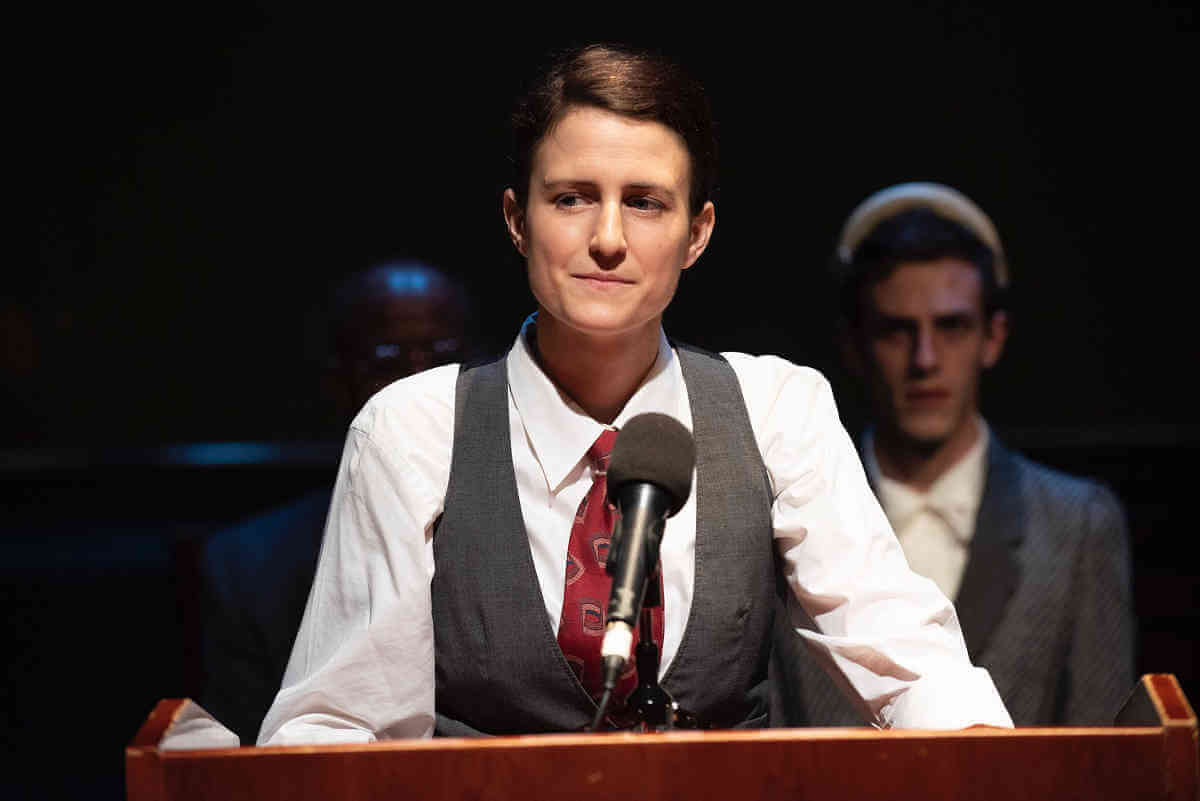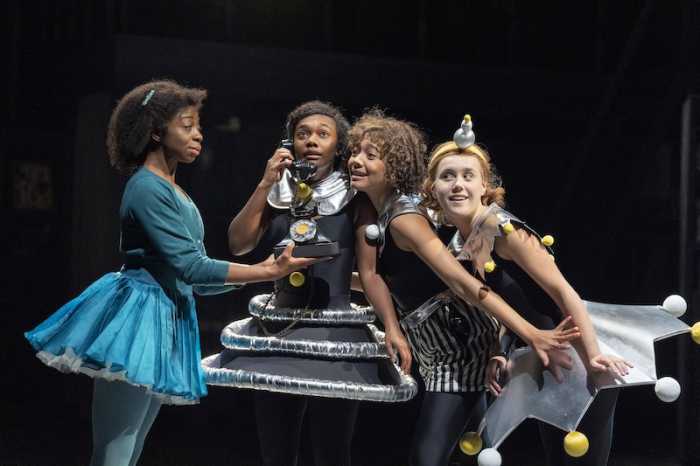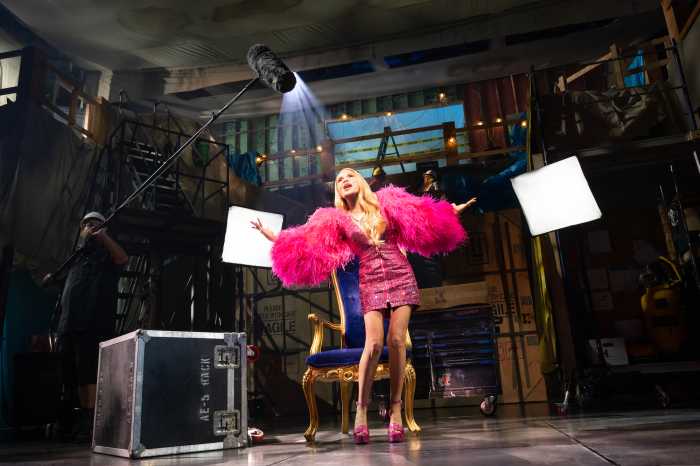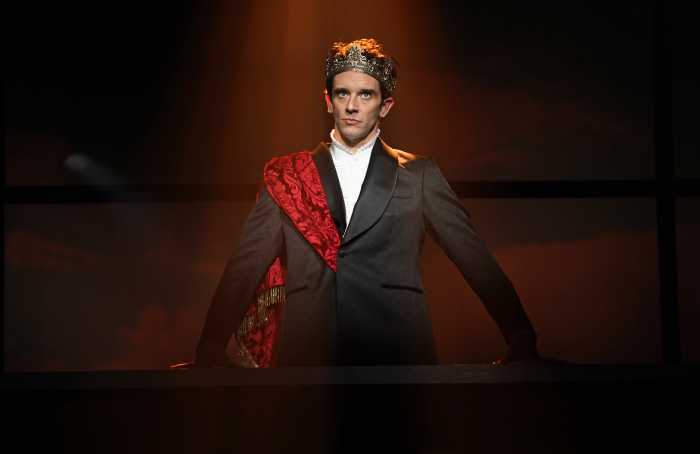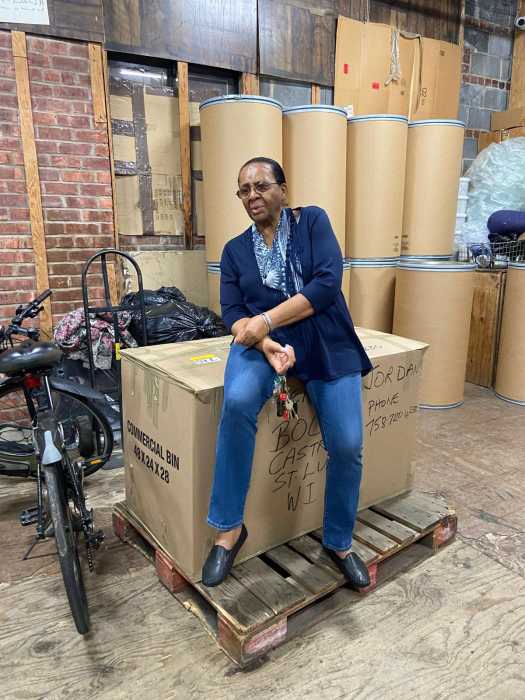In “Convention,” Danny Rocco’s raucous, wildly ambitious fact-based drama, a certain American political party sells its own soul to back an ill-equipped candidate as special interests consolidate power. Members are willing to compromise their core values and cement ties with big business through fearmongering and voter manipulation. Essentially, a presidential election is rigged.
No, I’m not talking about the Republicans and the 2016 election. It’s the Democrats and the year is 1944.
That’s when FDR was up for reelection for an unprecedented fourth term. The liberal, savvy champion of the New Deal was respected by both parties, and since nobody wanted to switch out the commander-in-chief during a calamitous world war, his victory was in the bag.
The hitch— and it’s a big one — is that FDR was gravely ill, a secret kept from the general public, and his running mate would surely become president. So the real contest was for the vice president portion of the ticket, played out behind the scenes at the Democratic National Convention in Chicago. But the process was far from democratic.
Incumbent Vice President Henry Wallace, the presumed nominee going into the convention, was hugely popular and embodied the party’s core liberal values. Problem was, a cadre of powerful Democrats, which eventually included FDR, believed he was too progressive. Not only was Wallace pro-labor and anti-segregation, he was branded a commie sympathizer because he was chummy with Russia. So the Democratic elite handpicked the moderate senator from Missouri, Harry Truman, and rammed him down their collective throats. Nothing short of a coup.
When Rocco conceived of the play, he recognized the inherent drama of the story, but also the potential snooze factor. Nobody goes to the theater for a complex history lesson.
What better way to engage audience members than to thrust them in the middle of the action? The piece attempts to replicate an actual convention by being staged in a cavernous space, the Irondale theater in a former Brooklyn church gymnasium, where theatergoers are seated among the delegates. You may find yourself rubbing elbows with one of the 40 cast members dressed in period costumes, designed by Jen Raskopf.
While the primary focus is the podium onstage, many overlapping mini-dramas unfold throughout the auditorium. Right in front of me, for example, was Helen Douglas (an excellent Lizzie Stewart), a delegate from California who argues passionately in favor of Wallace, while former Governor Culbert Olson (Greg Hudson) stands by her side in solidarity. Over the course of the proceedings, however, Olson begins to waver, then shifts his allegiance to Truman. Turns out he was promised a plum ambassadorship to Mexico for his support. (Six years later, Helen Gahagan Douglas, wife of actor Melvyn Douglas and a member of the US House, would lose her Senate bid to a fellow House member, Richard Nixon, who smeared her as the “pink lady.”)
Elsewhere, DNC Chairman Robert Hannegan (Ashley Alvarez) argues for Truman. “If Wallace becomes president, we are in deep trouble” he says. His DNC co-chair, Samuel Jackson (Kathleen Littlefield), objects to the vote manipulation scheme. “Why not let the convention do its thing?” he implores. Fat chance.
Frances Perkins (Ginnie House), US labor secretary and a diehard liberal, vows to do her level best to make sure Wallace prevails, “and not some whipping boy who will cave to big business.” She beseeches her fractious party to be “on the right side of history.”
At its best, “Convention” delivers more than two hours of enthralling, controlled chaos. Under the direction of Shannon Fillion, the convention hall comes alive with bickering and backbiting and bombast.
The level of fraud is astonishing. Ushers and guards are paid off. Even reporter Jack Bell (an appropriately smarmy Catherine Pulley) of the Associated Press is in on it, blackmailing delegates by threatening to publish damaging personal secrets if they don’t vote for Truman. At one point, the Truman camp temporarily (and illegally) shuts down the convention, effectively derailing Wallace’s nomination.
In a decidedly queer twist, Rocco prescribed that the cast be diverse and partly gender nonconforming. For instance, Wallace is played by a woman (Claire Mikelle Anderson), Bess Truman by a man (Daniel John Serpati), and Truman by an African-American man (Charles Everett). A refreshing break from the expected phalanx of white, middle-aged white men, this makes for some piquant same-sex pairings.
Not that there aren’t glitches. In part due to the vastness of the venue, it can be difficult to hear key dialogue, not only originating from a far corner but even from the podium with a microphone. For sure, some of this is by design to recreate the spontaneous mayhem of a convention, but it is challenging nonetheless. The gender-bending conceit makes it even trickier to keep track of who’s who. As to be expected from such a massive ensemble, performances range from superb to subpar.
Less than three months into his fourth term, FDR died of a stroke and Truman became president. We can only speculate how the course of history might have changed — evading the Cold War with Russia, perhaps? — if the process weren’t rigged and Wallace had landed in the Oval Office instead.
And while pundits and citizens alike declaim that the current situation in the White House is appalling if not downright untenable, this bold, thrilling “Convention” reminds us that dirty politics can come from either side of the aisle and is as American as apple pie.
CONVENTION | Irondale Center, 85 South Oxford St. at Lafayette Ave., Fort Greene | Through Jun. 29: Mon., Thu.-Sat. at 8 p.m.; Sat. at 3 p.m. | $18 at irondale.org | Two hrs., 10 mins., with intermission

